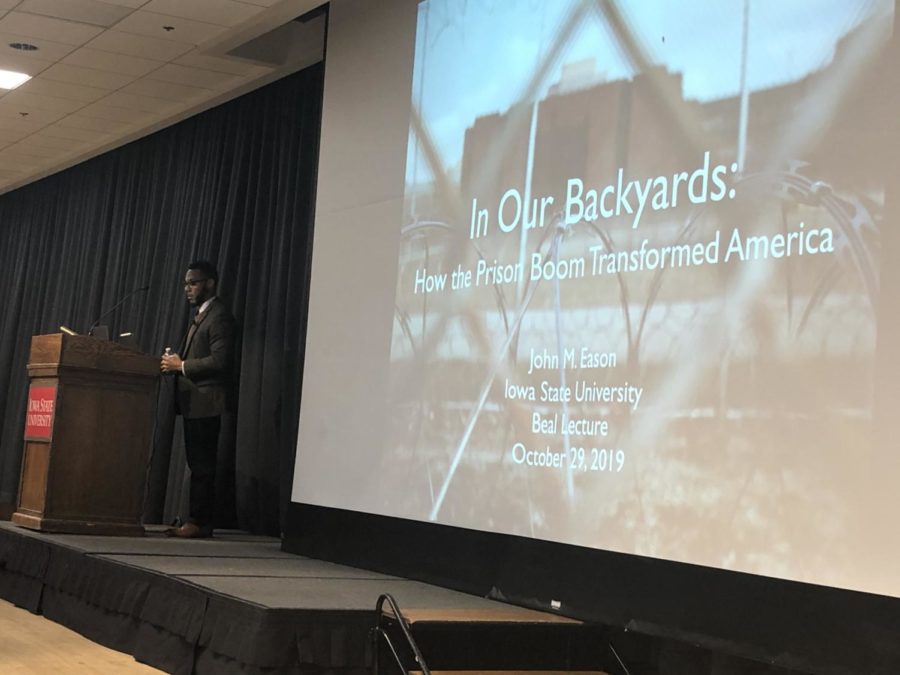Lecturer presents research on how the prison boom “transformed” rural America
Logan Metzger/ Iowa State Daily
John Eason, associate professor of sociology at the University of Wisconsin-Madison, presented the lecture, “In Our Backyards: How the Prison Boom Transformed Rural America.”
October 30, 2019
The increase of prisons in rural communities was discussed by a professor from the University of Wisconsin-Madison.
On Tuesday evening in the Memorial Union Sun Room, John Eason, associate professor of sociology at the University of Wisconsin-Madison, gave his lecture, “In Our Backyards: How the Prison Boom Transformed Rural America.”
“Many believe prisons are the ultimate form of racial and economic exploitation,” he stated.
At one point, Eason said he had this view. However, when he relocated to Arkansas to study the increasing demand for prisons in rural communities, his views changed.
“Prison building is a complex process, complicating much of what we understand about the political, social and economic life of rural communities,” Eason said.
Eason’s research showed towns with higher African American and Latinx populations are more likely to build prisons. As an example, Eason brought up the town of Forest City, Arkansas, which is home to about 1,900 prisoners.
According to a map, Eason showed the audience, Forest City is heavily segregated in terms of housing. Cities like this, he explained, tend to have higher crime rates. And Forest City does; the average murder rate, Eason said, is about four people per year. The prison was framed as a way of saving the city’s reputation. Black leaders, Eason noted, were largely supportive of the prison.
For towns like Forest City, Eason explained, a prison may be the most environmentally responsible option, as opposed to paper mills, dumps, incinerators and other undesirable facilities.
“These toxic facilities are likely to be located in poor and minority communities,” Eason said.
In this way, a prison becomes, “the best of the worst options.”
Eason went on to present many research findings to show a connection between racial discrimination and prisons. He said nine out of 10 African Americans have a friend or family member in prison and areas that were riddled with slavery in the past are now more likely to build prisons.
However, Eason said mass incarceration is not limited by race.
“Many believe mass incarceration is a distinctly urban, black phenomenon,” Eason said. “However, since 2000, rural and quite separately white communities are sending people to prison in record numbers.”
The lecture ended on a “hopeful” note, with Eason’s vision for the future: changing policies to reduce mass incarceration.
“As we gain more knowledge of how mass incarceration affects urban inequality, we are changing policy to reduce mass incarceration in these communities,” Eason said.







